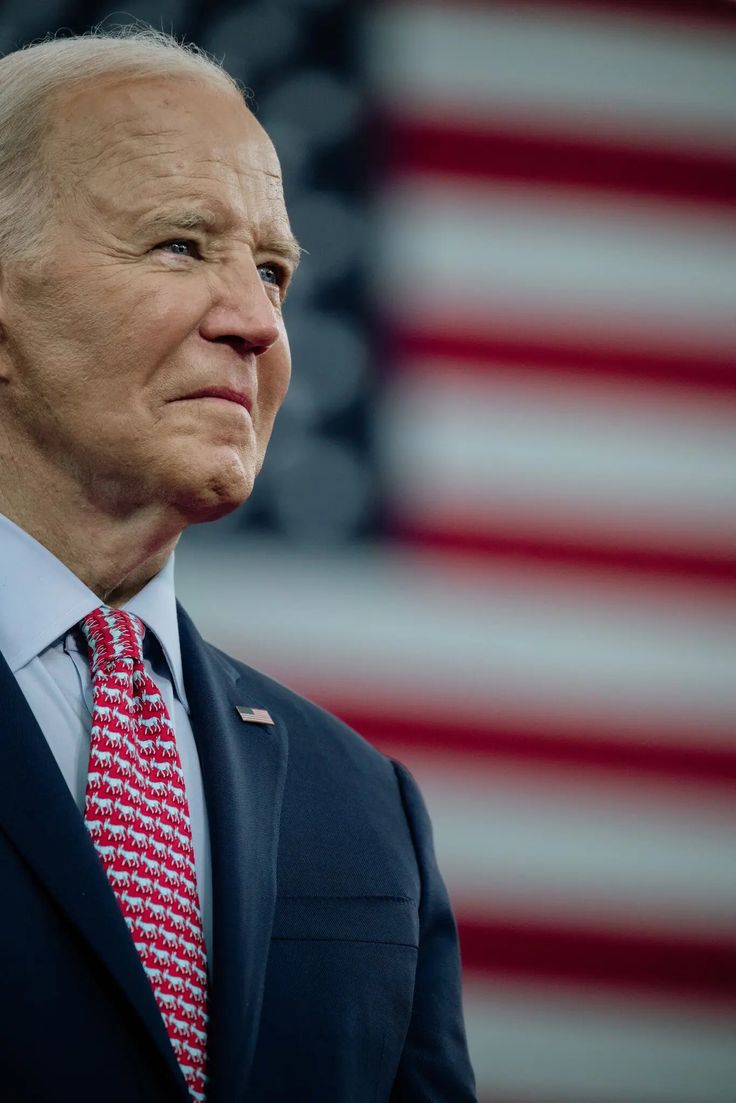Joe Biden (USA): 46th President of the United States (USA)
Full Name: Joseph Robinette Biden Jr.
Born: November 20, 1942, Scranton, Pennsylvania, USA
Political Party: Democratic Party
Office: 46th President of the United States (2021–present)
Previous Offices: Vice President (2009–2017), U.S. Senator for Delaware (1973–2009)
Early Life and Career: Joe Biden (USA)
Joe Biden (USA) was born in Scranton, Pennsylvania, and raised in Claymont, Delaware. His family faced financial challenges, which instilled in him a sense of empathy and a deep understanding of working-class struggles. After graduating from the University of Delaware in 1965 and earning his law degree from Syracuse University College of Law in 1968, Biden entered the political arena.
Biden began his political career in 1970 when he became a member of the New Castle County Council. In 1972, at the age of 29, he was elected to the U.S. Senate from Delaware, making him one of the youngest individuals ever elected to the Senate. Biden’s personal life took a tragic turn in 1972 when his first wife, Neilia, and their daughter, Naomi, died in a car accident. This devastating loss shaped much of Biden’s personal and political life, and he raised his two sons, Beau and Hunter, with the help of his family.
Senate Career: Joe Biden (USA)
Biden served as a U.S. Senator for Delaware for 36 years (1973–2009). During his tenure, he became a leading figure on foreign relations, judiciary, and criminal justice issues. He was a key player in the Senate Foreign Relations Committee, where he helped shape U.S. foreign policy, particularly on issues like Balkans intervention, Iraq, and Afghanistan. Biden was also known for his work on the Violence Against Women Act in the 1990s, a landmark piece of legislation that provided federal resources to address domestic violence and sexual assault.
Biden’s lengthy career in the Senate earned him a reputation as a skilled legislator, known for his ability to work across party lines and reach bipartisan agreements. His legislative achievements include playing a role in passing the Affordable Care Act and military aid packages during conflicts in the Middle East.
Vice Presidency: 2009–2017: Joe Biden (USA)
In 2008, Biden was chosen by Barack Obama as his running mate in the presidential election. Following their victory, Biden became the 47th Vice President of the United States. During his time in office, Biden was a key advisor to President Obama and took on a central role in domestic and foreign policy.
Some of Biden’s most notable accomplishments as Vice President include:
- Economic Recovery: Biden played a major role in the Obama administration’s response to the 2008 financial crisis, helping guide the American Recovery and Reinvestment Act (stimulus package) through Congress, aimed at bolstering the economy and creating jobs.
- Foreign Policy: As Vice President, Biden had a significant influence on foreign policy, particularly in Iraq, Afghanistan, and Ukraine. He was an advocate for diplomacy and multilateralism, building alliances and strengthening relationships with key global powers.
- Marriage Equality: Biden’s support for same-sex marriage helped push President Obama to publicly endorse it in 2012. His leadership on the issue was seen as a milestone in the fight for LGBTQ+ rights.
Biden’s time as Vice President was also marked by personal loss. In 2015, his son Beau Biden, the former attorney general of Delaware, passed away from brain cancer. Biden later announced he would not run for president in 2016, citing his family’s grief as a significant factor in his decision.
Presidential Campaign and Victory in 2020: Joe Biden (USA)
In 2020, Joe Biden ran for president again, this time challenging the incumbent president, Donald Trump. His campaign was centered on restoring the soul of America, promoting unity, and addressing the challenges of the COVID-19 pandemic and its economic fallout. Biden’s message of national healing and commitment to tackling systemic issues like healthcare, racial inequality, and climate change resonated with voters across the country.
Biden’s victory in the 2020 election marked a turning point in U.S. politics. He won with over 81 million votes (51.3% of the popular vote) and secured 306 electoral votes. Biden’s running mate, Kamala Harris, became the first woman, first Black, and first South Asian Vice President in U.S. history, making the 2020 election a landmark moment in American political history.
Presidency: 2021–Present: Joe Biden (USA)
Upon taking office in January 2021, Biden inherited a deeply divided nation, a global pandemic, and a fragile economy. His administration has focused on several key issues:
1. COVID-19 Response; Joe Biden (USA)
Biden’s immediate priority was addressing the COVID-19 pandemic. His administration focused on ramping up vaccine distribution, providing economic relief through the American Rescue Plan, and instituting measures to contain the virus. Biden promised to accelerate the vaccination process and push for economic recovery, and his efforts were initially successful in bringing vaccines to millions of Americans.
2. Economic Recovery; Joe Biden (USA)
Biden’s administration passed the American Rescue Plan in March 2021, a $1.9 trillion economic relief package aimed at helping individuals, small businesses, and healthcare workers during the pandemic. Biden also proposed the American Jobs Plan and American Families Plan, which focus on creating jobs, expanding infrastructure, addressing climate change, and supporting working families.
3. Climate Change and Infrastructure; Joe Biden (USA)
Biden has placed climate change at the center of his administration’s policies, rejoining the Paris Agreement and setting ambitious goals for reducing carbon emissions. The Infrastructure Investment and Jobs Act, signed in November 2021, was a bipartisan effort to modernize American infrastructure, investing in roads, bridges, broadband internet, and clean energy.
4. Foreign Policy; Joe Biden (USA)
Biden’s foreign policy has focused on restoring alliances that were strained during the Trump administration. This includes reaffirming the U.S.’s commitment to NATO, addressing China’s rise as a global power, and tackling issues in Ukraine, Afghanistan, and the Middle East. His decision to withdraw U.S. forces from Afghanistan in 2021, ending America’s longest war, was a controversial move that garnered both praise for ending a long-standing conflict and criticism for the chaotic nature of the withdrawal.
Biden’s administration has also worked to contain Russia’s influence in Ukraine, with U.S. support for sanctions against Russia and financial and military aid to Ukraine in its ongoing conflict with Russia. The administration has also addressed global issues such as climate change, trade policy, and the global economy.
Domestic Issues and Challenges: Joe Biden (USA)
In addition to his foreign policy and economic priorities, Biden’s administration has dealt with significant domestic issues:
- Racial Justice: The death of George Floyd in 2020 and subsequent protests highlighted systemic issues of racial inequality in the U.S. Biden has called for reforms in policing and criminal justice while working to address the legacy of racial discrimination.
- Immigration: Biden has sought to overhaul U.S. immigration laws, aiming to create a pathway to citizenship for undocumented immigrants and provide relief to children and families at the U.S.-Mexico border.
- Political Polarization: Biden has faced challenges in managing the deep political divide in the U.S. His presidency has been marked by stark partisan conflict, with Republicans and Democrats often clashing over key issues such as voting rights, infrastructure, and the economy.
Legacy and 2024 Re-Election Campaign: Joe Biden (USA)
As Biden approaches the second half of his first term, his legacy will likely hinge on his ability to navigate the political divide, address climate change, and ensure economic recovery in a post-pandemic world. While Biden’s approval ratings have fluctuated due to domestic challenges and international crises, he remains a key figure in shaping the direction of the United States.
Looking ahead, Biden is expected to run for re-election in 2024. His decision will depend on his political health, the state of the economy, and his ability to rally support within a fractured electorate.
Conclusion: Joe Biden (USA)
Joe Biden’s political career has spanned over five decades, marked by personal loss, legislative achievements, and a steadfast commitment to public service. As the 46th President of the United States, his leadership in 2025 continues to guide America through significant challenges—both at home and abroad. His ability to unite a divided nation, address climate change, and revitalize the economy will define his legacy as one of the most consequential leaders of the 21st century.










